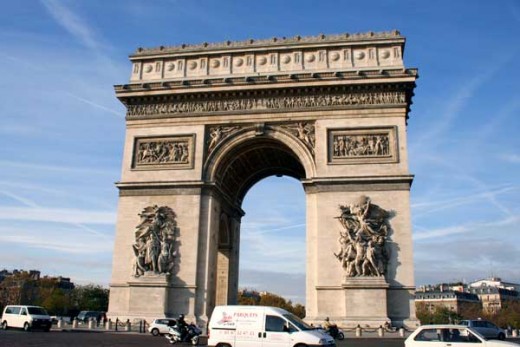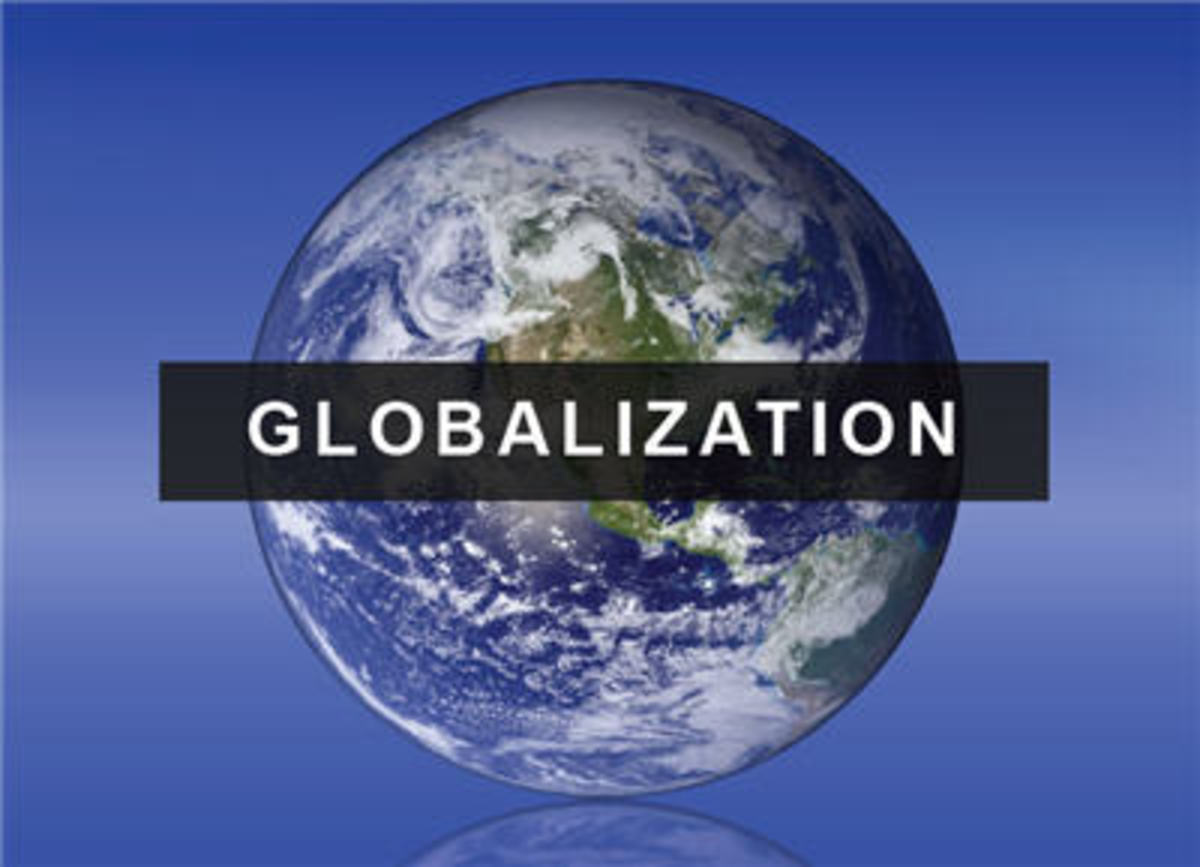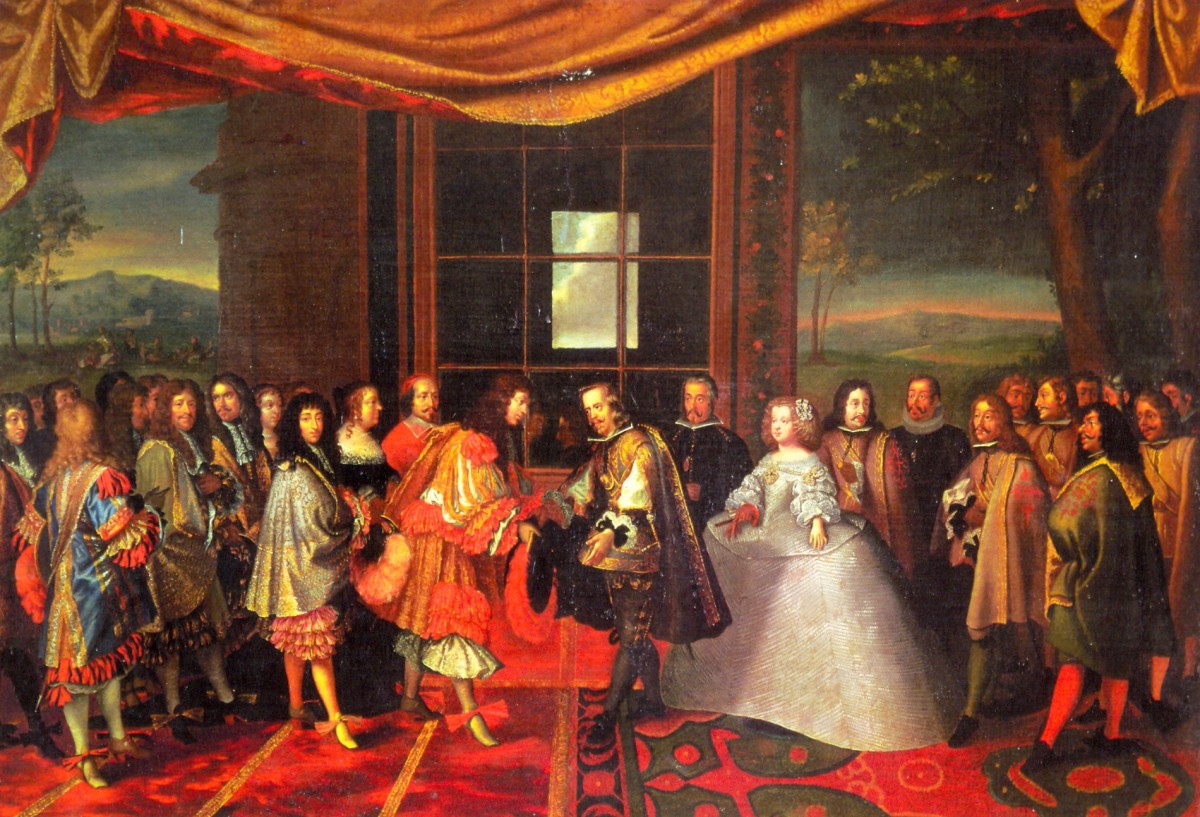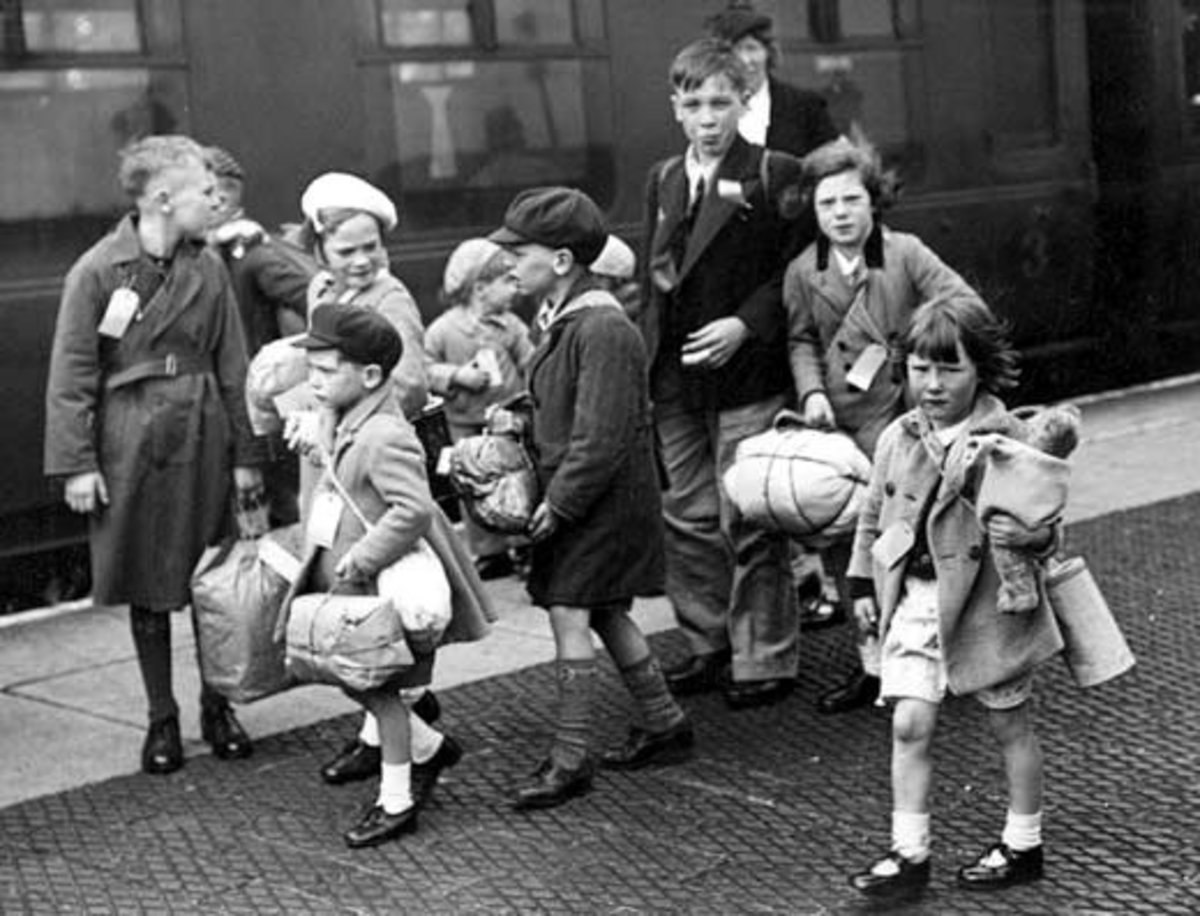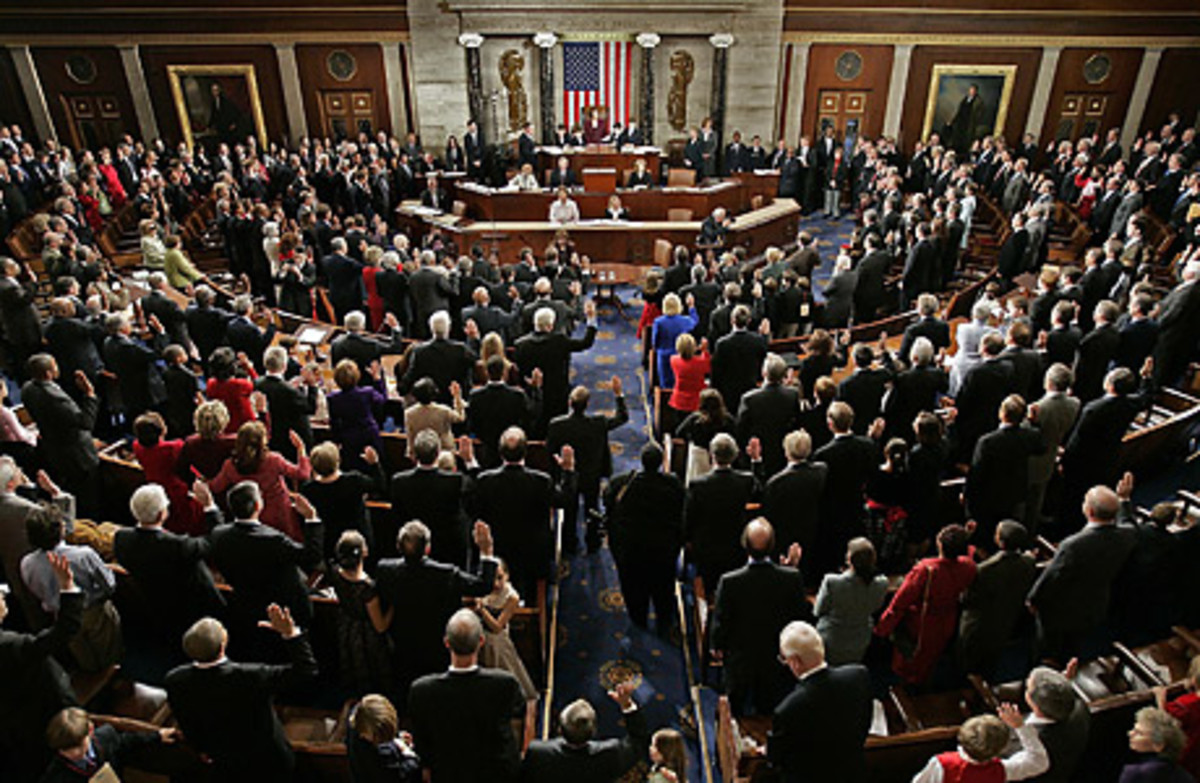A Social Conflict Approach of France
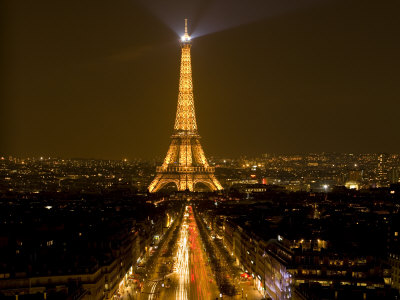
Social-Conflict, a theory that depicts the general picture of society as portraying inequality among itself to demonstrate conflict for an eventual change, whether gradual or radical in perspective. There are many multiple factors that are taken in consideration: Class, ethnicity, gender, race, sexual orientation, and age. All of these factors are then placed into a calculated response to inequality, from money, social prestige, education, and a general sense of power, whether on a personal level, or on a grand scale. Over the years, various sociologists have looked at various sub-factors to determine how the social structure of a society has been shaken from different inequalities. For example, a inequality such as class can prevent the lower class from performing or succeeding in different institutions like schools and the political system, while the upper class with much more influence can succeed with relative ease and so therefore a sense of tension is formed. From this example, it is fair to say that the lower class would strive to perform harder in an effort to succeed, and so reforms would eventually be forced upon a society when the inequality has reached a tipping point. One country that is a prime example of continued social-conflict would be France, a country of great social-conflict over the course of history from what was originally Gaul and it’s struggle with Rome, and after it’s fall, eventually became France, a growing nation that rose from revolution to world stage power and back again.
France, as it was known in modern day Europe, occupies a great section of the middle of Western Europe, but in the years from 1000 BCE to 481 CE, it was known as Gaul. The barbaric tribes of Gaul were comprised of a society based on power, money, and social prestige, of which the various tribes fought each other for territory claims and pillaging rights. This greatly changed however as Rome, a great civilization with practical knowledge of warfare and superior engineering decided to take Gaul for themselves under the rule of Gaius Julius Caesar. The inequality of Gaul as a race, becoming slaves to the Roman Empire, eventually gave rise to a very revengeful and sour taste among the surrounding races north of Gaul. In 481 CE, a race of people in the northeast of Gaul called the Franks began to rise in power, wishing to gain a percentage of the land the Roman people began to lose from the surrounding Huns and Visigoths alike. After a few centuries of warfare, the rule of Charlemagne of the eastern Carolingians came into power of Gaul, becoming west Francia, and an enlightenment of culture and education flourished for the lifetime of his rule in and around this new gained territory. After a hundred year war between two houses, one of English descent, and one of French descent, it became obvious that the French house of Valois had emerged victorious. The next four hundred years from the 1400’s until the 1770’s were quite extraordinary in respect to the renaissance and the reformations in religion from catholic to the protestant (Calvinism and Lutheran) principles seen in use among parts of Modern France today.
During the French Revolution however, is where the true ideals of Social-Conflict becomes a grim reality, well since the past slave trade of Gaul’s to The Roman empire, and the rise of centralized monarchy, creates a suppressed class of citizens known as the third estate, or the commoners and peasants. These citizens of France were suppressed for so long from the rule of Louis XIV, that an eventual need for political change came into play, and a French revolution occurred with the storming of the Bastille. Napoleon, with his Corsican military background, took advantage of the country’s need for social change from the oppression of the recently destroyed monarchy and proclaimed himself Emperor. It was this very moment, that social-conflict shaped the countries around France, as Napoleon and the general population became a very strict-traditional Spartan like country to expand their influence and power against other countries in the area. The expansion of France during Napoleons reign helped to influence other countries in attesting to the general public’s need for freedom from oppression of the Monarchies of the time, and began what would be the colonialism of the world, such as France accomplished for a short time from the extremes of Egypt, to the near dominance of Russia itself.
The Present state of France has both economic and political structure that still strains its politicians and economic issues from its wealthy elite to the working poor and even stooping into extreme poverty. France has a quite stable economy in both public and private sectors, but is beginning to move from a lenient and liberal economic structure to a more local and foreign driven market based on various factors of economic situations happening among other nations. The various resources that comprise the land are based off numerous ores and minerals such as coal, zinc, feldspar, uranium, iron ore, etc. It is also very fertile land for agricultural based needs and fishing which makes up 3.9% of the total employment yet is a very strong fallback in hard pressed situations. The political structure of France is distributed quite evenly among the various branches making up the system, a Fifth republic, or in which gives a substantial amount of prestige and power to the president. It is considered a modern democracy, in which a president is elected for five years and heads all domestic duties and wartime directives, whereas his prime minister gives domestic duties more detailed orders and heads national defense, while both tend to balance each other in various sectors. The next order down is the National Assembly of ordinary citizens, in which holds 577 seats and hold 5 year positions, of which the duties typically include scrutinizing day to day government affairs. After which is The Senate, consisting of high-level officials whose duties are to balance the national assembly and keep the constitutional and foreign affairs in order.
The inequalities in France are ever increasing since World War II and now through these recent revolts from the international riots and strikes. To begin, one must look at the numerous opportunities that are beginning to arise for immigrants from foreign communities that are taking jobs within the nation, preventing locals from gaining the domestic profits. This has created a rise in unemployment and the decrease in the value of local tender, as foreign immigrants send the profited money back to their respected countries without spending it in French territory, thus halting domestic growth. To make inequality even more prevalent, the bottom 50% population have seen their incomes actually fall by 2% a year, while the median has seen an increase of 2.5% a year, and the top 10% have actually seen a 4% increase a year, making the poor much poorer while the rich and political elite much richer (Social Inequality). The gender inequalities are just as severe as women tend to make almost 26% less than men and spend 5 hours a day with childcare duties while men only dedicate two. The image of a women is that they can do as any other man could do on a day to day basis, but also have to dedicate proper time to child care, making sure the house is clean and food is made, and all the while looking dressed up for the men to appreciate.
False Consciousness is an ideal based off a Marxist principle that institutional processes and materials presented to the public in a capitalist society is misleading to both the proletariat and the working class created by the elite of society. In the French sense of society, it is very true in that many of the upper class citizens and corporations hold a large share of profit holdings while the poor and working class struggle to survive. Total S.A., a French oil company, currently holds a little over 212 billion dollars in revenue for the 2011 year, a unimaginable number in comparison to the average worker who makes about 23,000 a year. The general concept of false consciousness can be found through media exploitation, wherein the elite class controls many of the news sources and so politically speaking, a veil can be placed over the general populations eyes.
To approach how France continues to use an exploitative system, one must look at the various government divisions that have formed to conduct various “acts to reduce terrorist organizations”, in order to gain from economic advantages in the region to the south and southeast of the country. The Mutual Logistics Support Arrangement (MLSA) with Australia allows for fishing production and control of particular waters to prevent overfishing from other countries in the Pacific and Indian ocean to greatly increase fish farming techniques between the large countries, but reducing other countries efforts to increase their food production efforts in the process. The G20, an Asia-Europe Meeting that France attends along with many other larger nations, allows for the exploitative initiatives of economic interests in countries that are at war with themselves or other nations to give loans for debt repayment later, or for oil production redistribution assets.
Globalization itself over the past decade has given rise to many inequalities within France’s society. The globalization has, caused lower wage pay and instead exporting jobs to gain higher production over standard of living for those living within the country. That is the domestic growth of the country is hampered to allow for mass production elsewhere allowing the elite with more income to gain the upper hand in society in luxuries that others cannot gain without excess workloads. Globalization has affected the country in other ways, in that while most immigrants are allowed into the country, there are a few laws that stand out as very controversial, such as the banning of the full veil by Muslims, and no Roma Gypsies (Originated from the Indian Sub-Continent), allowed in the country of France all together. This has caused a great deal of inequality on the parts of religious direction and cultural integrity that has occurred because of the effects by globalization. However, there has been multiple uprisings and revolts to keep labor workers and unions from falling to globalization over their need for domestic growth and income for middle and low class families, making globalization a possible issue for France as a whole.
In conclusion, Social Conflict will always be at the forefront of all major world powers around the world, creating inequality and causing one class to always strive to make a difference because of struggles they have endured. From the beginning of France’s history to present day, groups of the elite situated among the aristocratic Monarchy dominated peasants with religious fear, and eventually giving rise to the Imperialistic gains of Napoleon with a False Consciousness among the lower class to regain them with equal footing with the upper class. Today’s French society still struggles with social conflict through the globalization of the world at larger, once again leading to revolts and protests of the lower and middle class to rise from inequality and find themselves among society once again.
If you like this article, you can view a few others below:
- The Greatest Imperialistic Nation of the 19th Century
Great Britain, a Country that dominated the 19th century world, and through economic and an imperialistic process, helped guide the world to what it is today. - Socialism VS. Capitalism in Philosophy
An article based on political philosophy and the difference between capitalism and socialism. This is examined with a sense of end results in a more directional One World Government and how it would be structured. - Best Castles in France, the Top 10 French Chateaux
A collection of photos and info on the most beautiful castles in France, including some of the top French chateaux. - French Stereotypes, Myths About the People of France
Learn the French stereotypes and find out whether these are fact or fiction. Can you guess which are truth and which are myths about the people of France? - A General Understanding of the Nicene Creed
The Nicene Creed, A document that offers the symbol of Roman and Eastern Catholic Beliefs. This is simply to offer a broad understanding of this Document and some of it's revisions.
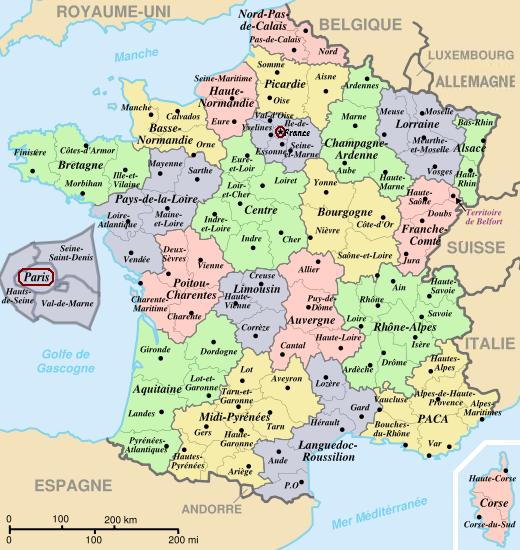
Do you think France is in a state of economic Crisis?
